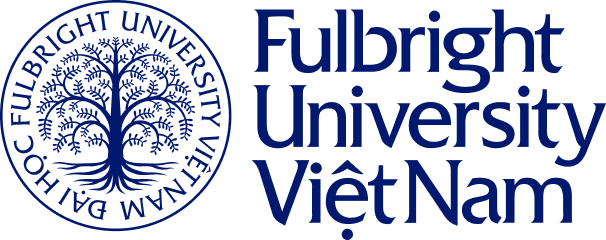
Han Thinh, a student of the Class of 2027 at Fulbright, was born and raised in a farming family in Kien Giang. His childhood was closely connected with rice fields and images of prosperous farmers in the fields. Thus, Thinh has always harbored a desire to develop the agriculture of his homeland to support local farmers.
Especially, Han Thinh has decided to have a gap year experience to travel across Vietnam and explore the country’s agriculture. Thinh also lived on a farm in Quang Nam to learn more deeply about sustainable agriculture.
The gap year is becoming a common trend among young people today. Han Thinh is an example of successful exploration and self-direction after a gap year period.
Applied to Fulbright multiple times but luck did not smile upon him

At the end of grade 12, Thinh learned about Fulbright through a school visit conducted by the Fulbright Admissions team. Despite learning about Fulbright quite close to the admissions deadline, Han Thinh was immediately impressed by the close-knit admissions process and the first Financial Aid program at this internationally recognized university.
Despite his diligence in his first Fulbright application, luck did not favor him. Undeterred, Thinh remained determined to apply to Fulbright for the second time.
During the waiting period for the application results, Thinh returned to observe and explore agriculture in his hometown. He noticed that modern agriculture is closely associated with pesticides and chemical fertilizers. This was a concern for the young man with a passion for sustainable agriculture.
Thinh always aspired to pursue a life of natural agriculture. He believed that agriculture could ensure essential living, simplify rural life, and give people the opportunity to live in harmony with nature.
The conflict between his personal beliefs and the reality of life prompted Thinh to explore the surrounding society. He wanted to compare people’s perspectives on sustainable agriculture with his own thoughts. Despite being invited to the Fulbright interview round, Thinh decided to pause his studies for a year to seek answers for himself.
The 129-day journey across Vietnam and the gap year story as a farmer

On February 24, 2022, Thinh and his friend began a journey across Vietnam to explore agriculture. At each province they visited, Thinh volunteered at local farms. During each 1-2 week stay, Thinh learned about the operations of various farms and listened to the stories of farmers in different areas.
In 129 days of wandering through diverse farms, Thinh noticed the increasingly serious issue of pesticides and chemical fertilizers, which impact agriculture and the natural environment. However, one or two weeks only provided a superficial view. Seasons come and go, each with its own challenges. “I want to become a farmer. I want to live on a farm for a longer period to feel and experience enough,” Thinh shared.

After this journey, Thinh had an overview of agriculture and chose Rom Vang farm in Quang Nam as the place to start his farming journey. Thinh planted crops, raised animals, harvested rice, and especially experienced the feeling of preventing storms in the Central region.
Here, deep conversations with the farm owner helped Thinh understand the importance of higher education in broadening perspectives and providing knowledge to build and maintain farms. Han Thinh constantly questioned himself about the path of higher education. “I always write journals to reflect and determine what I need, what I want, what I lack, and how Fulbright can help in my future direction,” Thinh reminisced.

After nearly a year of practical experience, Thinh understands that if he wants to change society regarding sustainable agriculture, an individual or a small community is not enough; there will always be factors hindering expansion.
Fulbright – where individuals reach out to the community to spread the message of sustainable agriculture

“I chose the path of education, I chose Fulbright to understand more about society and to expand connections with the community, spreading the message of sustainable agriculture,” Thinh shared about his next destination.
A special point that led Thinh to Fulbright was the admissions process. While with public universities in Vietnam, the process of taking a gap year and returning to study can be difficult. Students have to retake exams, pass competency tests, and deal with many other issues. Meanwhile, at Fulbright, these personal experiences are always valued and encouraged. The Fulbright application is where Thinh proudly shares valuable lessons and personal development after his gap year experience.
At Fulbright, Thinh is excited about the journey of self-discovery through interdisciplinary studies. This is an opportunity for Thinh to have a diverse perspective on many issues, contributing to solving significant concerns about agriculture.
In the Modern Southeast Asia course, Thinh gained a deeper understanding of the development process of lands and the operation of nature. Or through Global Humanities – one of the five core courses at Fulbright, Thinh learned many world philosophies to have a more comprehensive view of how the world and humans operate.
If a year of gap year has enriched practical experiences as a farmer, then Fulbright will be where Thinh learns about the world, connects with the community, and spreads the values of sustainable agriculture to everyone.








